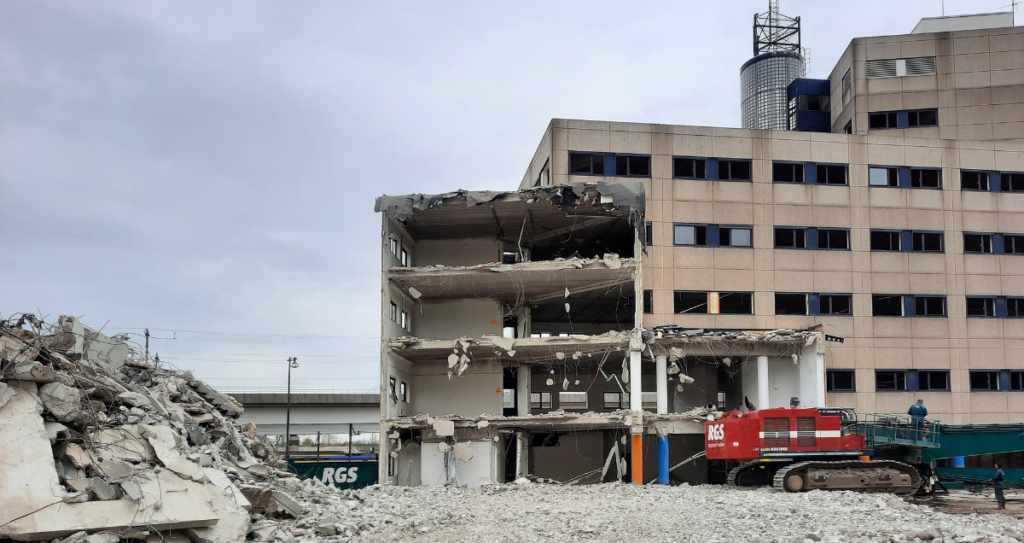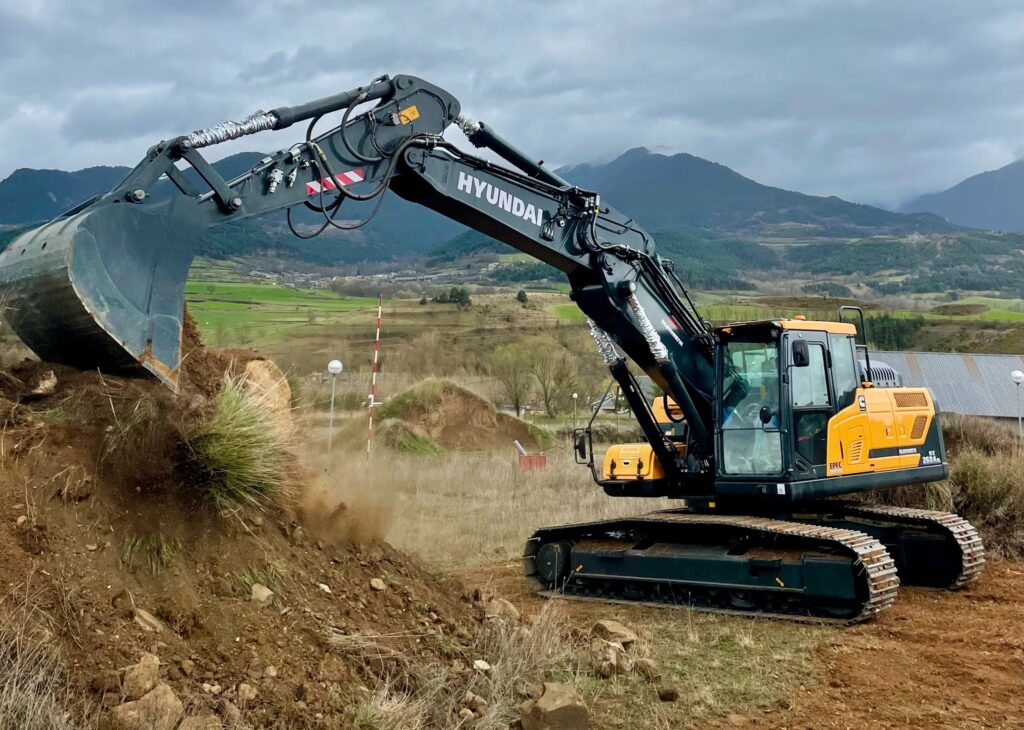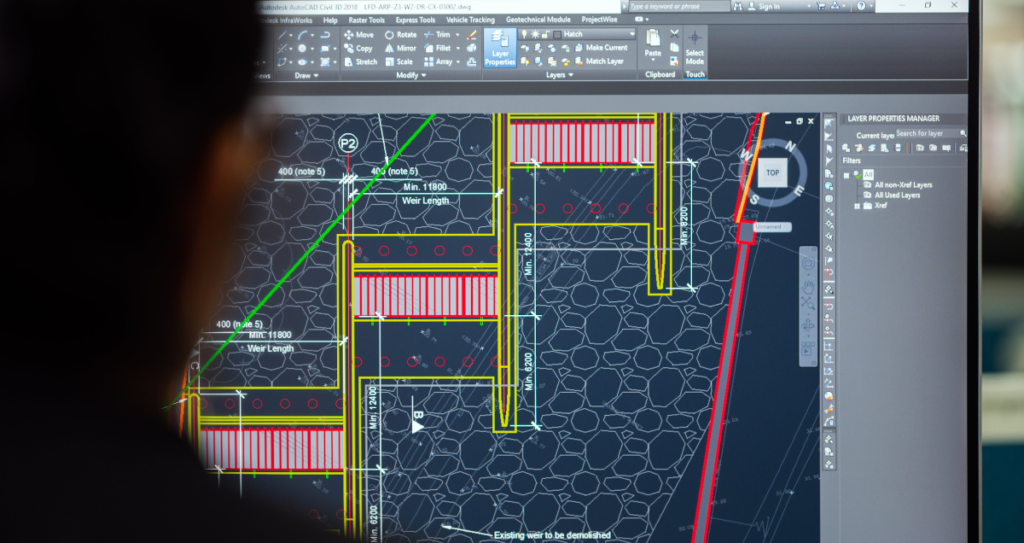Before the actual construction work starts, several important preliminary works in construction must be carried out to ensure a smooth and successful execution of the project. There is a wide range of materials, equipment, and labor included in construction preliminary expenses because they have an effect on the project as a whole. There are numerous works involved in the preliminary activities which we will discuss in this blog post.
1. Demolition

For many construction projects, the initial phase is demolition. This process involves the careful dismantling or destruction of existing structures after their life of serviceability to make way for new structures. Demolition can range from small-scale removal of interior walls to large-scale demolitions of entire buildings. It is also possible to start demolition before a building is fit for use. When a structure interferes, is in the way, or is within the bounds of a newly proposed project, demolition is necessary. There are four steps in the demolition process:
(a) Surveying of buildings for demolition
(b) Removal of hazardous materials
(c) Method of demolition
(d) Safety measures
2. Site Clearance

After demolition, the site clearance phase begins. It involves removing debris, vegetation, and any other obstructions from the construction site. Site clearance ensures a clean and organized area for subsequent construction activities. It may also involve the relocation of utilities and services to facilitate the construction process. The following steps are included in the site clearance process:
1. Clearing and grubbing of bushes
2. Removal of the top layer of soil
3. Site and Soil Survey
This is an important first step in the design and building of a project because the foundation determines the structure. We can determine important elements by carrying out this survey, including the accessibility, surrounding structures, and soil condition. We can choose the appropriate kind and quantity of resources for building with the help of this information. Since the stability and integrity of a building depend on the strength of the soil beneath it, it’s crucial to conduct a soil survey before starting any construction work on an unknown ground.
The reasons why conducting a soil survey is important are as follows:
1. To assess if the site is suitable for the proposed project.
2. To determine the most suitable and cost-effective foundation design.
3. To identify any potential changes in the subsoil conditions.
3. Planning

Planning involves selecting the best method and order of work for a project from various options. Effective planning is the backbone of any successful construction project. During the planning phase, project objectives, timelines, and resource allocation are determined. To create a clear project roadmap, architects, engineers, contractors, and other stakeholders must work together during this stage. To prevent delays and cost overruns, close attention to detail and thorough inspection of all relevant issues are important.
The importance of planning construction is as follows:
1. It minimizes costs by making the most efficient use of available resources.
2. It reduces confusion, duplication of work, and conflicts between different departments.
3. It promotes innovation and creativity in construction management.
4. It provides a competitive advantage to the enterprise.
5. Detailed Designing

Detailed designing is an important step where the project concept is transformed into a tangible plan. Architects and engineers work together to create detailed construction drawings and specifications. These documents outline the dimensions, materials, structural components, and other essential details required for construction.
It also involves assessing the structure’s stability, strength, and rigidity, based on the physical requirements and understanding of the materials and geometries used. Clear and precise communication between the design and construction teams is necessary during this phase.
6. Cost Estimation

Cost estimation is the process of predicting the probable cost of a project, considering the required workmanship and specifications for various items of work and the schedule. Accurate cost estimation is essential to ensure that the construction project remains within budget. It involves assessing the costs of labor, materials, equipment, permits, and other project-related expenses. Cost estimating can be done with a variety of methods. The detailed cost estimation includes:
(a) The direct cost of various work items.
(b) Provision for unforeseen circumstances.
(c) Direct supervision charges.
(d) Miscellaneous expenses such as water supply, sanitation, and electricity.
(e) Accommodation for labour and field offices.
Once all the preliminary work is completed, the actual construction process begins, involving setting out, excavation, and other necessary activities.
Conclusion
Preliminary works in construction play a vital role in setting the foundation for a successful project. From demolition to site clearance, site and soil survey, planning, detailed designing, and cost estimation, each step is necessary to ensure a smooth construction process. By following these preliminary works, construction projects can proceed with clarity, safety, and efficiency.
FAQs (Frequently Asked Questions)
Q: Why is demolition necessary before construction?
A: Demolition is necessary to clear the site of existing structures and make way for new developments. It provides a clean slate for construction to begin.
Q: What is the purpose of site clearance?
A: Site clearance involves removing debris, vegetation, and obstructions from the construction site. It ensures a clean and organized area for subsequent construction activities.
Q: What is the purpose of a site and soil survey?
A: A site and soil survey helps engineers assess the site’s suitability for construction and design appropriate foundations.
Q: What are the preliminary works in construction project?
A: Preliminary works include all the tasks carried out at a building site before the start of actual work, including clearing the area, planning, designing, cost estimation, demolition, site surveying, and soil sampling.
Q: How does detailed design contribute to a successful construction project?
A: Detailed designing ensures that all stakeholders have a common knowledge of the project by providing a clear strategy for construction. It helps avoid errors, delays, and cost overruns.
Q: Why is cost estimation important in construction?
A: Accurate cost estimation allows project owners to efficiently plan their budgets and make informed decisions. It makes sure the project stays financially viable and helps to avoid financial failures.


